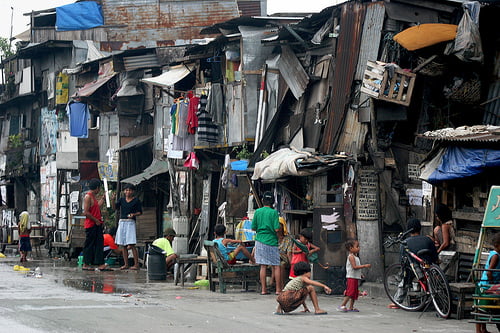At one end, there is President Aquino and Neda director-general Arsenio Balisacan, who claim that the government has succeeded in reducing poverty incidence through its policy of inclusive growth.
At the other end, there is the IMF and its country representative here, who believe that the government’s poverty reduction boast is at best a case of fudging the numbers, by employing a change of formula in computing poverty figures.
IMF exposes the lie in PH poverty reduction

The IMF, in its country assessment report of the Philippines, contends that, contrary to government claims, there has been little inclusive growth in the country and little poverty reduction.
The report says that, with the new formula in use, between 2013 and 2014, poverty rose again by around one percentage point.
The IMF believes that the jobs situation lies at the bottom of Philippine poverty.
“More than a third of the country’s jobs are in the low wage and low skill services sector,” it said.
“The overall lack of more and better jobs is the result of relatively slow economic growth and the country’s incomplete structural transformation, characterized by stunted agriculture and manufacturing, two sectors which typically create substantial number of jobs, in particular for the poor and less-skilled.”
The IMF said the stagnation in real wages in the country has made it difficult for the poor to take advantage of their most valuable asset, their labor, as a means to get out of poverty...
All this goes to show that the Aquino government really has only two weapons thus far in the fight against poverty:
First, the conditional cash transfers (CCT) that are administered by the Department of Social Welfare and Development (DSWD), and have reached stratospheric levels under Aquino after being introduced by then president Arroyo.
Second, the use of a formula shift in computing poverty figures.
In the first, direct government dole outs are used to help families inch out of poverty.
In the second, the government directly massages the numbers so they become more respectable and more manageable.
A great deal more needs to be done to wrestle down the poverty problem. The IMF country assessment report should be must reading for everyone running for president in the 2016 election.- Full story: Manila Times
